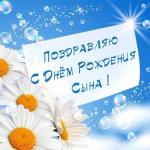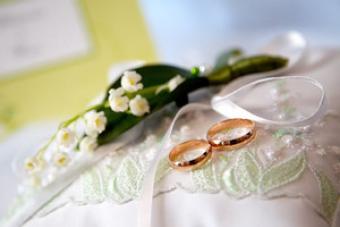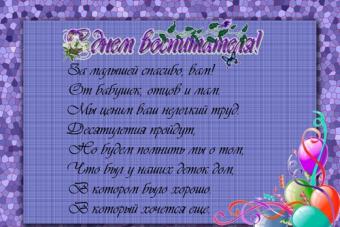Easter is one of the most joyful and bright holidays of the year. Its celebration is associated with many centuries-old traditions and customs, which add Easter special flavor and soulfulness. Unfortunately, not all of us are well acquainted with Orthodox Easter traditions. What will be done on Easter and what cannot be done on this church holiday, as well as what to do before and after the Holy Resurrection, will be discussed further.
What to do before Easter: the main traditions of the day
The celebration of the Resurrection of the Lord is preceded by the Holy Week - the last week before the great holiday. In the old days, every day of it was associated with certain traditions that were strictly followed by all believers. So, for example, on Monday, the hostesses began to restore perfect order in the house. In addition to the general cleaning, a special essential oil with herbs was also prepared that day, which was used to treat various ailments throughout the next year. On Tuesday, laundry and clothes were washed and darned. Also on Good Tuesday put up and asked for forgiveness. On Wednesday, as a rule, all housework was completed and eggs were cooked.
On Maundy Thursday, all family members were sure to bathe, preferably before dawn. Such a ritual of ablution guaranteed good health for the whole year, and also symbolized spiritual purification. Also on Thursday, Easter cakes began to paint eggs and bake. On Good Friday, as a rule, they did nothing and tried not to eat. Thus, believers mourned for Christ. On the last day before Easter - Saturday, the last preparations were completed. On this day, the housewives prepared all the remaining Easter treats, cleaned and washed.

What are they doing on Easter?
Easter is celebrated on Sunday - the last day of Holy Week. Traditionally, believers go to church on the night of Saturday to Sunday to defend the Easter service and consecrate Easter cakes and eggs. In addition to traditional Easter cakes and dyes, you can also hallow water, salt, and fruit. Consecrated foods are believed to bring health. In addition, it is also customary to leave a part of the brought products in the church so that everyone in need on this day can share the joy of the holiday.
On a note! On Easter it is customary to greet each other with special words: "Christ is Risen." In response to such a greeting, one must say: “Truly Risen.” Then kiss three times.
On Sunday morning, traditionally the whole family gathers at one table to start celebrating Easter. First, the head of the family cuts the cake into as many parts as there are people at the table. With a piece of Easter cake and dye, the conversation begins. After you can try other festive dishes. Then you need to have fun and enjoy all day.

What can not be done on Easter?
There is a list of what you can’t do at Easter. For example, on this day it is strictly forbidden to swear, quarrel, mourn and go to the cemetery. Also, you can’t work and exercise. The church is not encouraged by the excessive drinking of strong alcoholic beverages, including their consecration during the service.
What do after Easter?
In the first week after Easter, it is customary to commemorate the departed. All week you can go to the cemetery and bring Easter treats.
Also, in the period before the Ascension of the Lord (40 days after the Resurrection of Christ) one should adhere to the main Easter rules: to be friendly, joyful, not to swear, to live in peace with others. If possible, you need to work less and avoid hard physical labor. At this time, it is worth paying more attention to spiritual development and purification.
We hope that we have answered you the main question about what to do on Easter and what not to do. And this year, in practice, you will apply all the knowledge gained.

How to spend this day with dignity? After all, Holy Easter is a special day not only for believers, but also for those who are quite far from religion.
All we can do on this day is to rejoice, treat our friends and relatives, invite them to visit us, and also pay visits to those who are much worse these days than you to try to help them.
On Easter you can eat any food, as well as drink wine. However, this should be done in moderation. Moderation is the main rule of any feast and not only Easter.
If you have a normal relationship with alcohol, then you can afford to drink it in a small amount. However, if you know that you cannot stop, it is better to abandon it altogether. Indeed, on Holy Easter, to be drunk is a great sin.
Remember that fun should be more spiritual than physical.
What can not be done on Easter

So what is not worth doing on Easter Day? On this day, do not be sad, indulge in sad and sad thoughts. You can’t walk angry, gloomy, and also swear with others. It’s especially bad to swear.
But these prohibitions do not apply solely to Sunday. All these rules should be observed throughout Holy Week.
This week should be an example of how a person should always behave. Regardless of whether it is a holiday or not, a person must behave decently, honestly and decently. We should always help those who need it, be kinder, use less foul language and drive away bad thoughts.
What else can not be done on Easter?

The first thing that comes to mind when it comes to Easter restrictions is the ban on work. If you have a day off on Easter Sunday, you are lucky. But, unfortunately, the question of working or not at Easter does not always depend on us. If the authorities confront us with the fact that we need to go to work, we implicitly carry out the order and go to work.
Do not worry if your schedule falls so that on Easter you will have to work. There is nothing criminal or sinful if you work not of your own free will.
After all, here we are also talking about obedience. You are required to simply conscientiously carry out your normal work. It is believed that if you honestly and truthfully perform your duties, the Lord will certainly understand and forgive you.

As for the prohibitions on homework, it should be understood that this is not some kind of strict prohibition, the violation of which will be punished from above. The point is that on this day it is worth giving up work in order to devote time to your family and friends.
Devote yourself to godly thoughts of God, celebrate, be with your loved ones.
The ban on work on Easter days is not canonical; it is most likely just a godly custom.
We all know that household chores and daily chores are integral parts of every person’s life. And giving up these troubles is not always easy. If you don’t have the opportunity to completely abandon these efforts, you can devote some time to them during the holidays.
However, try to do it wisely. In order not to spend a festive day, mired in mopping or dishes. And even more so, it is not worthwhile to start spring cleaning or painting window frames on Easter. Well, you see, these things can be postponed until later.
What should be in the Easter basket

So, the bright holiday of Easter is coming.
Many of us follow the pleasant tradition of gathering on Easter night with our closest and dearest people, usually members of our family.
We fill our baskets with products that we have prepared in advance and go to the church service.
But what can you not find in the Easter basket: cakes, eggs, meat products, fish dishes, salt, horseradish, water, wine. Each family has its own list of products, which they consider necessary to put in a basket.
However, many of us incorrectly fill it. So, what should be put in the Easter basket, and what should be discarded?
You need to remember the basic rule that there should be only 4 main elements in the basket, do not overload it with everyone.
KULICH

Easter cake is the main attribute of Holy Easter. It symbolizes the body of Christ, and is also a symbol of the kingdom of heaven.
Most of us are accustomed to the passions of the pyramidal form, it is this form that reminds Golgotha, the place where Christ was crucified.
EGGS

Easter eggs are a symbol of new life.
The custom of painting eggs with its roots goes back to antiquity. The tradition says that Mary Magdalene turned to the ruler of Tiberius. As a gift, she brought an ordinary chicken egg, and also told him the news of the resurrection of Christ.
However, Tiberius did not believe what the woman said. Moreover, according to him, “people cannot rise from the dead just as a white egg cannot suddenly turn red.” Legend has it that it was after this phrase that the egg suddenly turned bright red.
DAIRY PRODUCTS

White color is a symbol of purity and pure love. Dairy products symbolize the Almighty's love for people.
MEAT PRODUCTS

Regarding the presence of meat products in the basket, Christ is identified with the sacrificial lamb. He was also sacrificed in the name of humanity and for the salvation of the human soul.
In addition, the horseradish root and salt are additionally placed in the Easter basket. Horseradish is associated with the homeland, and salt is associated with financial wealth in the family.
Do not forget about the candle. She must also be present in the Easter basket. If the hostess wants to show imagination, she can decorate a basket with flowers, ribbons, consecrated willow branches or use other decoration elements.
And the last: you can’t take alcoholic beverages to the church service. After all, religion does not approve of the use of alcohol.

Various spirits have nothing to do with great church holidays. Do not even put the cahors in the basket. Also make sure that it does not have a knife or other sharp objects.
It is also worth remembering that the products that were consecrated in the church should never be thrown away and sent to the bucket. What then to do with leftover food? It is recommended to distribute food to those who need it. And the Easter cake crumbs need to be placed in a bird feeder.
The most frequently asked questions about what can and cannot be done on Easter: how to fast before Easter? When can I talk for Easter? How to spend Easter day? Are there any things that cannot be done? What can I eat on Easter and can I drink alcohol on Easter? Can I work on Easter? Can I do my homework on Easter? Do the cleaning, knit, sew? How to greet each other Easter? What to give for Easter?
So, first things first. Let's start with the first question.
How to fast before Easter?
Good Friday is the strictest fast. According to the Charter, it is not supposed to eat anything on this day. If you can bear it for health, try it. On all other days of Holy Week, fasting is also strict, we only eat plant foods, and without oil.
When can I talk for Easter?
Conversation (the first short meal after fasting) on \u200b\u200bEaster usually takes place after the Liturgy and Communion. If you were at the Liturgy at night, then after a night service you can start a festive meal. If you came to the Liturgy in the morning, then just the same - after the sacrament - you can talk. The main thing is that everything must be approached with a sense of proportion. Do not overeat.
How to spend Easter day? Are there any things that cannot be done?
On this day, you can’t be sad, walk gloomy and curse with others. But just remember that Easter is not 24 hours, but at least a whole week - Bright Week. In the liturgical plan, the Resurrection of Christ is celebrated for seven days. Let this week be an example of how we should always behave in society, among people. How to spend Easter? Rejoice, treat others, invite them to visit, visit the afflicted. In a word, everything that brings joy to your neighbor, and therefore to you.
What can I eat on Easter and can I drink alcohol on Easter?
On Easter you can eat and drink everything, most importantly, do it sparingly. If you know how to stop in time, you can treat yourself with all the dishes, drink wine or some strong drinks - not to the point of extreme intoxication, of course. But if you find it difficult to limit yourself, it is better not to touch alcohol. Rejoice in the spiritual joy.
Can I work on Easter?
Most often, the question of whether or not to work does not depend on us. If Easter Sunday is your day off, this is of course very good. You can visit the temple, and meet with loved ones, and congratulate everyone.
But it often happens that we find ourselves forced into service and, according to the work schedule, are forced to work for Easter. It’s okay if you work hard. Maybe you can be sad about this, but no more than five minutes! Obedience is obedience. Do your work in good faith that day. If you fulfill your duties in simplicity and truth, the Lord will certainly touch your heart.
Can I do my homework on Easter? Do the cleaning, knit, sew?
When we read somewhere that on holiday there is a ban on homework, we should understand that it is not just a ban, but a blessing for us to spend this time in attention to the Lord, the holiday and our neighbors. So that we do not get hung up on worldly fuss. The ban on work on Easter is not canonical; rather, it is a pious tradition.
Household chores are an integral part of our life. You can deal with them on a holiday, but only approaching this wisely. In order not to spend Easter, doing general cleaning until the night. Sometimes, for example, it is better to leave unwashed dishes in the sink than to be annoyed at households who have not washed the dishes.
How to greet each other Easter?
Easter greeting - angelic. When the Myrrh-bearing Women came to the Holy Sepulcher to anoint the body of the crucified Christ with incense, they saw an Angel there. He told them: “What are you looking for the living between the dead?”, That is, he said that the Savior was resurrected.
We greet our brothers and sisters in faith on Easter with the words “Christ is Risen!” and we reply to the greeting: "Truly Risen!" Thus, we are telling the whole world that for us the Resurrection of Christ is the basis of life.
What to give for Easter?
For Easter, you can give your neighbors any pleasant and necessary gifts. And it will be good if for any gift an Easter egg, decorated or red. An egg as a symbol of the testimony of a new life - the Resurrection of Christ.
The red color of the Easter egg is a memory of the tradition according to which Mary Magdalene gave the emperor Tiberius an Easter egg for Easter. The emperor told her that he did not believe that a person could rise again, that it was just as incredible as if this white egg suddenly turned red. And, according to legend, a miracle happened - in front of everyone's eyes the egg turned red, like the blood of Christ. Now the painted egg is a symbol of Easter, the Resurrection of the Savior.
Fomin Igor, priest
Easter is a church holiday during which the Lord and the son of God are glorified. The history of the holiday is striking: in ancient times there lived a pharaoh who hates Jews. God's people wanted to leave the state, but Pharaoh was categorically against it, because he used them as slaves.
With the advent of Moses, the prophet of God, the fate of the Jews changed. He helped bring the Jewish people out, punished the slave owner, and gave the Jewish people his homeland called Jerusalem.
That is why this city is called a holy place. After many years, the son of God, called Jesus Christ, was born on this holy land. At 33, Jesus was crucified on Mount Calvary. This happened on Friday. The day before, the son of God organized the last supper, where he gathered the congregation.
After the crucifixion, the body of Jesus was placed in a cave. A few days later, the body was not found. Jesus appeared before the people alive. It is on this day that the resurrection of the son of God, in other words, Jesus, is celebrated. Easter symbolizes deliverance from death, deliverance from sins and grace.
A lot of signs and customs are connected with the holiday. There are rituals that can and must be performed, but there are those that are strictly prohibited.

What is forbidden to do
On Easter Day, you must not:
- Thinking of the bad.
- Wish evil to people.
- Swear with relatives.
- Use profanity in the lexicon.
- Lie.
- Embroider.
- To sew.
- To knit.
- To clean up the house.
- Hoover.
- Sweep.
- Hack.
- Throw away consecrated food.
- Get rid of sanctified things.
- Mock people.
- Work in the garden, field.
- Dig.
- Sow.
- Lead an intimate life. Sex life is prohibited all week. Refuse from intimate life should be two spouses. This happens by mutual agreement.
- Watch TV.
- Visit entertainment venues.
- Conduct noisy feasts.
- Sit at the computer.
- Take revenge.
- Change a spouse.
On Easter week it is forbidden:
- Get married. By tradition, marriages on this day are not blessed by the Almighty. You cannot marry. These families may not have children.
- To order requiem.
- Mourn.
- Cry.
It is undesirable to wash the dishes, but if necessary, do not worry. All people are subjected to household chores. There is no escape from them and no one will fulfill them for us.

During the existence of the Union of Soviet Socialist Republics, it was believed that you should not visit the cemetery on this day. But the church says otherwise. No one forbids visiting the departed relatives, praying for them and remembering. But Easter is a holiday of good, light and rebirth. Therefore, you can visit the deceased on the ninth day after the celebration of Easter.
Signs
On the bright holiday of Easter, food is blessed in the church. People visit the sacred house, bring gifts to it, receive communion and pray.
Food is surely holy. Eating sanctified food after Lent means purifying and forgiving sins. The consecration of food is an ancient sign and tradition.
All food is stacked in an Easter basket. It is customary to cover:
- Red wine.
- The eggs.
- Kulichi.
People come to church, listen to the liturgy, praise God and go home to talk. Talking means eating.

Before Easter, people stand fast. These days you can’t eat meat, fish, eggs, dairy products. The strictest fasting falls on Good Friday.
On holiday it is allowed:
- Laugh.
- Have fun.
- Pray.
- Visiting guests.
- Invite friends and family to the house.
- Do charity work.
- Carry out work to care for young children and sick people.
- Forgive insults.
On a church holiday, it is allowed to drink alcohol in moderation. Drinking is not drunk, preferably red wine - Cahors.
You can work if the situation requires it. But this does not mean labor in the garden or field, but at the place of employment. To work or not, the person decides.

On this day, people greet each other in a special way: they kiss and exclaim “Christ has risen” three times. In response, you must answer "truly risen."
For Easter it is not customary to give presents. But it is not prohibited. They give their relatives the necessary gifts, household items, sweets, Easter eggs and decorations.
The symbol of Easter is an egg decorated with drawings. It symbolizes a new life. During a conversation, people beat and eat eggs.
The holiday is dedicated to rest, prayers, family reunion and spiritual solitude.
In ancient times, people believed that when a person dies on Easter, God forgives him all sins. The deceased is given a place in paradise and eternal life. The soul is cleansed of evil and unkind thoughts, and God accepts the deceased in heaven. Death is a terrible moment, but no one is safe from it.
Do not throw eggshell eggs.

Ways to get rid of the shell:
- It is burned and buried in a place inaccessible to people. Then they do not get feet on this place.
- The shell is ground to powder in a coffee grinder and folded into a container. It is added to food while eating.
- Grinds and descends into running water.
- Refers to the temple. There is a special place in the church where you can lay the shell.
Leftover food is given to animals and birds. Easter cakes cannot be thrown away.
What can not be done before Easter
Before a church holiday it is impossible:
- Eat meat.
- Drink alcohol.
- There are sweets.
- Eat fats and spices.
- On Good Friday, you can’t swim and do homework.
- Perform a wedding ceremony.
Eating forbidden foods is allowed only to people observing the diet. This applies to diabetics and people requiring special nutrition.
How to celebrate a holiday
Easter Meets:
- With good intentions and joy.
- In the circle of family and friends. Reunion with family brings people together, gives positive emotions.
- Clean. The house is not cleaned on a holiday, but before it.
- The reception of guests. The celebration should not be noisy.
Easter is one of the most beloved holidays for Christians. On Christ's Sunday people talk, eat Easter cakes, Christians, regardless of whether the fast was observed or not.
There are many opinions on how to properly celebrate Easter - someone arranges big feasts and does not refuse anything on this day, and someone goes to church first. Popular superstitions that have survived from pagan times are closely intertwined with the true traditions of the Orthodox Church, so it can be very difficult to determine what is right and what is not.
So how to celebrate this holiday, what can you do on Easter, and what not?

What is forbidden to do on Easter
You cannot work at Easter. In fact, the church does not prohibit working on this day, because many people, due to circumstances, are in their workplace on Easter. In this case, it is not considered a sin. At the same time, work that can be postponed to another day on Easter is better not to be done. Do not do household chores and chores, wash, sew, clean. But again, the clergy note that there are no strict restrictions on work on Easter, at the same time it is better to do all housework in advance, since Easter is a holiday when you need to relax.

You can’t go to the cemetery. Opinions differ on this score. On the one hand, Easter is a holiday of goodness, joy and light, in which there is no place for sorrow and sadness. This day you need to have fun, glorifying the Resurrection of the Lord, and not grieve over the departed loved ones. On the other hand, Easter is considered to be “the day of the dead," because on that day Jesus went to hell and announced to the dead that they were saved and free. So there is no definite answer to the question whether it is possible to go to the cemetery in Easter. But clergymen advise to commemorate their dead relatives on a special day for this - Radonitsa, which happens on the 9th day after Easter.
On Easter, you can’t be sad, discouraged and curse. Easter is a celebration of joy, therefore sorrow, sadness and despondency are prohibited. On this day, it's time to free yourself from insults and negative thoughts and ask God for strength and health. Also, you can not swear and swear.

Do not throw away leftover Easter food. As a rule, after the festive feast there are leftovers of food - Easter cakes, Easter, eggs. Do not throw away everything that is not eaten! You should not send even eggshells to the bin. All food leftovers are usually given to birds or animals.
How to spend on this day? Go to church, gather at the same table with your loved ones, congratulate all your friends and acquaintances, forgive insults, let go of bad memories. Spend this day with kindness and joy in your heart! Good luck and don’t forget to press the buttons and
07.04.2015 09:20
Parental Saturdays are widely known among the people. These days it is customary to go to cemeteries and remember ...
It is known that everyone is alive with God, but many believe that visiting a cemetery on Easter is equal ...




